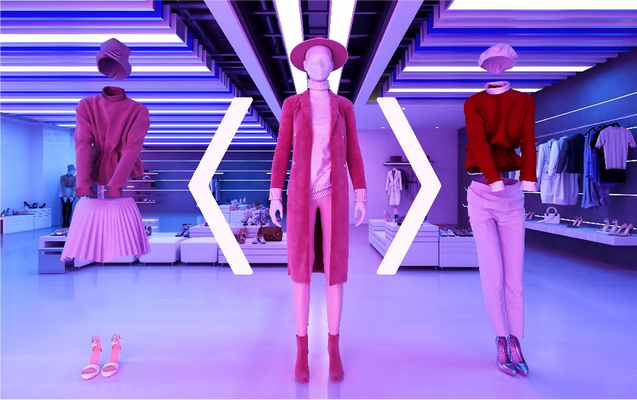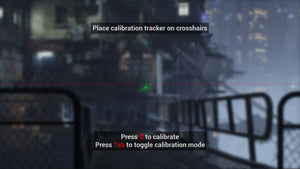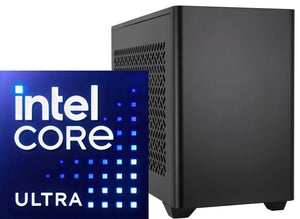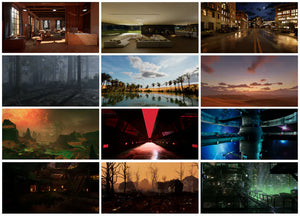Virtual Reality in Retail: Transforming the Shopping Experience with ARwall

The retail industry has always been quick to adopt innovations that enhance customer experience and drive sales. Today, virtual reality in retail is reshaping the way businesses connect with consumers, offering immersive, interactive, and personalized experiences. From virtual try-ons to digital showrooms, VR is no longer a futuristic concept—it is an evolving standard in modern retail.
At ARwall, we help retailers embrace the full potential of virtual reality in the retail industry by designing interactive environments, scalable solutions, and consumer experiences that merge the physical and digital worlds seamlessly.
What is Virtual Reality in Retail?
In simple terms, virtual reality in retail uses computer-generated, immersive environments to let customers explore products or stores digitally. Instead of only browsing shelves in physical outlets, shoppers can enter a fully interactive virtual space.
For example, a customer can walk through a digital furniture showroom, arrange sofas, and even test different lighting—all before making a purchase. These virtual reality in retail examples highlight how immersive technologies can replicate real-world scenarios while offering convenience and personalization.
This trend is part of the growing virtual reality in retail market, which is rapidly expanding as both consumers and businesses recognize its value.

Use of Virtual Reality in Retail Stores
The use of virtual reality in retail stores is varied and continues to grow. Fashion retailers employ VR to let customers try on clothes digitally, while furniture brands use it to showcase how pieces fit into a customer’s living space. Grocery stores can design engaging VR promotions that allow users to explore new products or recipes.
For retail businesses, this means fewer product returns, increased engagement, and stronger customer loyalty. By bridging the gap between physical and digital shopping, VR also opens up access to global audiences who may never step foot into a physical store.
Benefits of Virtual Reality in Retail
The benefits of virtual reality in retail go beyond convenience. Businesses can gain insights into consumer behavior by tracking interactions in VR environments. Customers, on the other hand, enjoy personalized shopping journeys tailored to their preferences.
Some of the biggest advantages include:
-
Enhanced product visualization.
-
Improved customer confidence before purchase.
-
Reduced operational costs through digital showrooms.
-
Greater brand differentiation in a competitive retail market.
By deploying ARwall’s solutions, retailers can transform how they present products and how customers perceive their brand, all while positioning themselves at the forefront of innovation.

Virtual Reality in Retail Market Trends
The virtual reality in retail market has seen accelerated growth in the past few years, driven by advancements in hardware, improved VR content quality, and changing consumer expectations. According to various market analysis and forecasts, the sector is projected to reach significant adoption across fashion, furniture, automotive, and even grocery segments.
Key virtual reality in retail market trends include:
-
Growing demand for virtual try-on experiences in fashion and cosmetics.
-
Expansion of digital showrooms for large items like furniture, appliances, and cars.
-
Integration with e-commerce platforms for seamless online-to-offline journeys.
-
Use of VR analytics to understand and predict consumer behavior.
This evolution has created a competitive edge for retailers who adopt VR early, boosting their virtual reality in retail market share.
Augmented Reality and Virtual Reality in Retail
While VR provides fully immersive environments, many businesses are combining it with augmented reality to deliver a hybrid experience. Augmented reality and virtual reality in retail allow customers to try products both in a digital store and in their own real-world space. For example, AR-powered mobile apps can overlay furniture into a shopper’s living room, while VR can take them into a fully branded showroom.
ARwall specializes in merging AR and VR seamlessly, offering retailers tools to engage audiences across multiple channels—physical stores, online platforms, and immersive brand experiences.
Virtual Retailing and Business Innovation
The rise of virtual reality in retail business has given birth to the concept of virtual retailing. Unlike traditional e-commerce, virtual retailing places consumers in interactive, branded environments where they can shop, interact, and even attend events.
For instance, a fashion brand might host a virtual runway show where attendees can purchase outfits in real time. A tech brand might design an immersive VR demo where users can test devices before ordering them. These innovations expand beyond mere transactions—they create memorable experiences that drive loyalty.
What Is the Future of VR in Retail?
So, what is the future of VR in retail? The outlook is clear: immersive shopping will become a core expectation, not just a novelty. As VR headsets become more affordable and mobile-friendly VR solutions emerge, consumers will engage with virtual retail experiences in everyday shopping.
Businesses that invest early will benefit from higher engagement, stronger customer insights, and a reputation as innovators in their industry. At ARwall, we believe the next frontier of retail is one where digital and physical boundaries no longer exist—where every customer interaction feels personal, interactive, and immersive.

Conclusion: ARwall Leading the Shift in Virtual Retail
The use of virtual reality in retail is no longer experimental—it’s a powerful tool transforming the industry. From retail stores to e-commerce platforms, VR delivers immersive experiences that increase confidence, reduce returns, and boost customer loyalty.
At ARwall, we empower retailers to take advantage of these innovations through customized VR environments, real-time product visualization, and scalable solutions designed for global audiences. Whether you’re analyzing the virtual reality in retail market size, exploring new examples, or preparing for the next wave of market trends, our team helps you unlock the full benefits of VR for your business.
Ready to transform your retail strategy with immersive technology? Contact ARwall today and let’s create your next virtual shopping experience.




